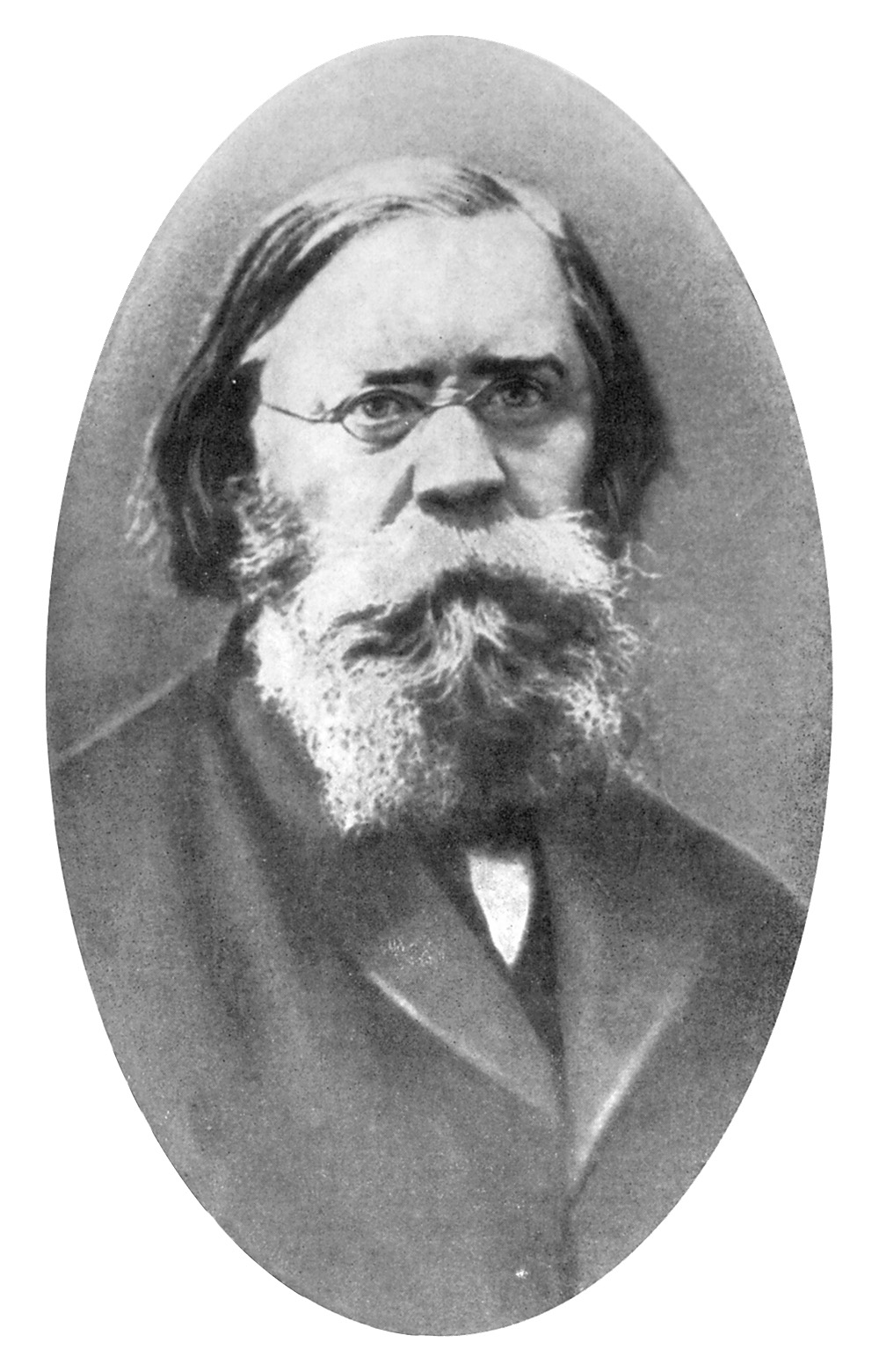- Peter Lavrovich Lavrov
Infobox Philosopher
region =Russian philosophy
era =19th century philosophy
color = lightsteelblue
image_size = 180px
image_caption =
name = Peter Lavrovich Lavrov
birth = birth date|1823|6|14
death = death date and age|1900|2|6|1823|6|14
school_tradition =Narodnik
main_interests =
notable_ideas =
influences =
influenced =
box_width = 200pxPyotr Lavrovich Lavrov ( _ru. Пётр Лаврович Лавров; alias - "Миртов", or Mirtov) (
June 2 (June 14 N.S.), 1823 –January 25 (February 6 N.S.), 1900) was a prominentRussia ntheorist ofnarodism ,philosopher ,publicist , andsociologist .He entered a military academy and graduated in 1842 as an army officer. He became well-versed in natural science, history, logic, philosophy, and psychology. He also became an instructor in mathematics for two decades.
Lavrov joined the revolutionary movement as a radical in 1862. His actions led to his being exiled to the
Ural Mountains in 1868 from which he soon escaped and fled abroad. InFrance , he lived mostly inParis , where he became a member of the Anthropological Society. Lavrov had been attracted to European socialist ideas early on, though at first he did not know how they applied to Russia.Cite journal |last=Kimball |first=Alan |author-link= |year=1971 |title=The Russian Past and the Socialist Future in the Thought of Peter Lavrov |journal=Slavic Review |volume=30 |issue=1 |pages=28–44 |url= |issn= |doi=10.2307/2493441 ] While he was in Paris, Lavrov fully committed himself to the revolutionary socialist movement. He became a member of the Ternes section of theInternational Workingmen's Association in 1870. He was also present at the start of theParis Commune , and soon went abroad to generate international support.Lavrov arrived in
Zürich in November 1872, and became a rival ofMikhail Bakunin 's in the "Russian Colony". In Zürich he lived in the Frauenfeld house near the university. Lavrov tended more toward reform than revolution, or at least saw reform as salutary. He preached against the conspiratorial ideology ofPeter Tkachev and others like him. Lavrov believed that while acoup d’etat would be easy in Russia, the creation of a socialist society needed to involve the Russian masses. He founded the journal "Forward!" in 1872, its first issue appearing in August 1873. Lavrov used this journal to publicize his analysis of Russia’s peculiar historical development.Lavrov was a prolific writer for more than 40 years. His works include "The Hegelian Philosophy" (1858–59) and "Studies in the Problems of Practical Philosophy" (1860). While living in exile, he edited his
Socialist review, "Forward!". A contribution to the revolutionary cause, "Historical Letters" (1870) was written under the pseudonym Mirtov. The letters greatly influenced the revolutionary activity inRussia . He was called "Peter Lawroff" in " _de. Die Neue Zeit" (1899–1900) by K. Tarassoff.Revolutionary Ideology
In Peter Lavrov’s view, socialism was the natural outcome of Western European historical development. He believed that the bourgeois mode of production planted the seeds of its own destruction. “Lavrov began his revolutionary career with the assumption that the future belonged to West European scientific socialism, as created by material conditions of West European civilization.” Lavrov recognized that Russia’s historical development was significantly different from that of Western Europe, though he still maintained hope that Russia might join in the greater European socialist movement.
In Lavrov’s analysis of Russia’s historical development, he concluded that the essence of Russia’s peculiarity rested on the fact that they had not experienced feudalism and all of its progressive features. Russia had been isolated from European development by the Mongol conquest in the thirteenth century. In 1870, Lavrov published a comparison of the levels of economic, political and social development of several Western European nations and Russia, noting the relatively backward and poor condition of Russia.
Despite Lavrov’s historical analysis, he still believed a socialist revolution was possible in Russia. One of his contemporaries,
Georgi Plekhanov , believed that a socialist revolution would only come with the development of a revolutionary workers’ party. In other words, he believed that Russia would have to wait for the same historical development experienced by the West. Lavrov rejected this outlook, believing it possible to create socialism by basing revolutionary tactics on Russia’s individual history. Almost 90 percent of Russia’s population werepeasants , and there was also the intelligentsia: a unique bunch of people without any class affiliations, who, “unlike other elements of Russian society, were unflawed by the past.”Thus, Lavrov felt that a true socialist revolution would have to integrate the rural population in order to succeed. Lavrov considered the intelligentsia the only portion of society capable of preparing Russia for participation in a world-wide socialist revolution. He gave them the task of compensating for the shortfalls of Russian historical development by organizing the people, teaching them scientific socialism, and finally, preparing to take up arms with the people when the time would come.
References
Wikimedia Foundation. 2010.
